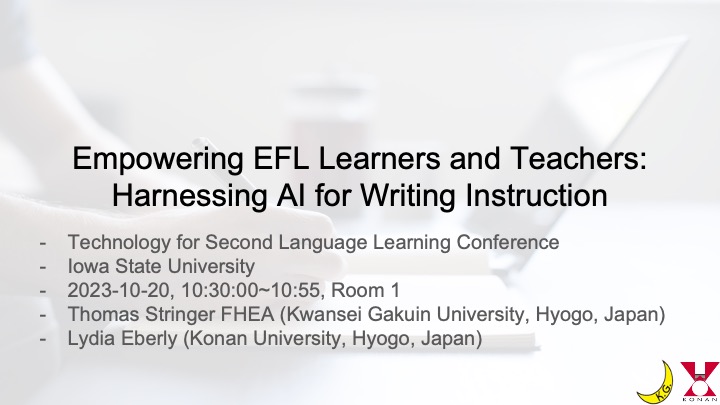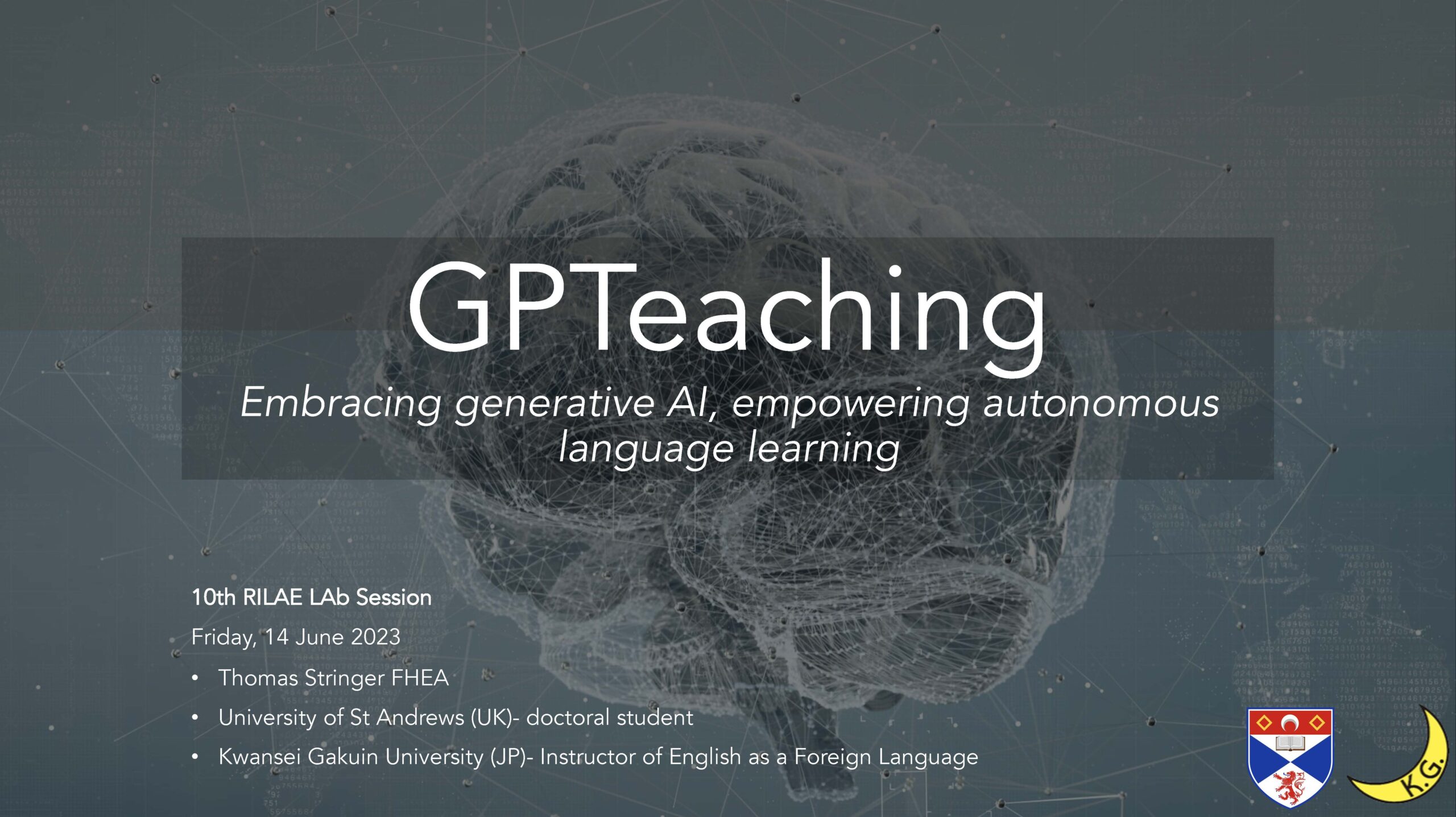Educational Practitioner Presentations
Educational Practitioner Presentations
Navigation Top
Empowering EFL Learners and Teachers: Harnessing AI for Writing Instruction (October 2023)
GPTeaching: Embracing generative AI, empowering autonomous language learning (June 2023)
Description of Practice Presentation (Video, October 2023)

Although the topic of autonomy is not directly addressed, this exploratory investigation suggests a way in which personalised AI and peer feedback could scaffold more autonomous EFL writing.
Abstract: Traditional peer assessment activities, such as analysis or feedback, promote self-assessment and learning (Reinholz, 2016). AI may play similar peer-supportive roles with English as a Foreign Language (EFL) writing. Furthermore, writing instruction is a labor-intensive aspect of language teaching. AI could reduce that burden. This ‘feedback on writing processes and products’ presentation explores ChatGPT (OpenAI, 2023) as a beneficial tool for learners and teachers in EFL writing classrooms. A study was conducted with three classes of 15 to 25 first- and second-year EFL learners at two Japanese universities. Learners with proficiency scores equivalent to CEFR A1 to B1 met two to four times weekly. ChatGPT was used in five stages to enhance instruction: 1. To generate typical EFL writing topics and genres, 2. to produce sample topic texts, 3. to rewrite sample texts using stylistic genre conventions, 4. to generate genre-typical feature analyses of the stylized texts, and 5. to revise examples of students’ writing to make them more target-like. Additionally, the presenters will highlight how learners interacted with AI-generated texts. Learners first read a ChatGPT writing genre exemplar, before planning and writing short passages. Learners then engaged in traditional peer assessment, analyzed and compared other students’ writing to an AI-revised version, before finally rewriting their own work and receiving peer feedback. This exploratory study investigates qualitative and quantitative differences between learners’ drafts before and after analyzing the AI-generated revisions, and describes teachers’ impressions of affordances and limitations with using AI-generated texts to guide EFL writing instruction.
References
- Reinholz, D. (2016) The assessment cycle: a model for learning through peer assessment, Assessment & Evaluation in Higher Education, 41(2), 301-315, DOI:10.1080/02602938.2015.100898
- OpenAI. (2023). ChatGPT (Mar 14 version) [Large language model]. https://chat.openai.com/chat
Description of Practice Presentation (Video, July 2023)

Abstract: Alongside rapid technological advancement, exploring intersections of technology and learner autonomy is crucial. This ‘description of teaching practice’ presentation discusses affordances and limitations of generative AI in fostering learner autonomy and transforming learning experiences in my context. I will detail a case-study of courses I currently offer at a Japanese university. Course aims include integrated content and language instruction and preparing learners for instructional styles in higher education outside Japan. These learners need support in developing diverse active learning strategies for handling reading and lecture content. The technology-supported explicit strategy instruction and practice opportunities I offered in class may expand learners’ repertoire of self-directed learning skills, enabling them to better select and use appropriate ones, thus enhancing their autonomy as language learners. The major focus of the talk is introducing exploratory learner training methods being implemented. This innovative approach utilises generative AI to bridge the gap between classroom instruction and independent language learning, by comparative guided analysis of both AI exemplars and learner generated summaries. The aim is empowering learners by scaffolding awareness, nurturing positive dispositions, and impacting strategy usage. I will reveal ongoing student reactions to this teaching approach and shed light on implementation barriers- including ethical concerns around consent. This session is relevant to educators interested in teaching for autonomous language learning with generative AI in diverse settings. The insights and examples shared may be applied in their own classrooms or advising sessions.The presentation is also available on the RILAE YouTube Channel.
